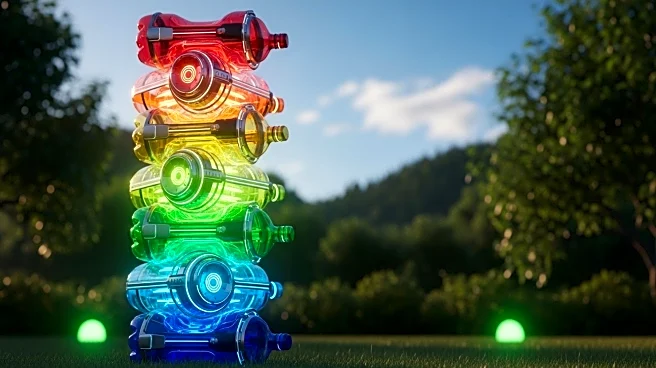What's Happening?
Researchers in Denmark have developed a method to transform decomposed PET plastic into a carbon capture material called BAETA. This innovative approach addresses two major environmental issues: plastic waste and greenhouse gas emissions. The process involves upcycling PET plastic through aminolysis to create a CO2 sorbent that efficiently absorbs carbon dioxide. BAETA is more heat-resistant than other amine sorbents and can absorb up to 0.15 pounds of CO2 per pound of material. This development offers a scalable solution to reduce plastic pollution and mitigate climate change.
Why It's Important?
The method developed by the researchers provides a dual solution to the global challenges of plastic waste and climate change. By repurposing plastic waste into a material that captures carbon dioxide, the approach not only reduces the environmental impact of plastic but also contributes to efforts to lower greenhouse gas emissions. This could lead to significant advancements in carbon capture technology, offering a cost-effective and scalable system for reducing atmospheric CO2 levels. The potential to utilize decomposed plastic from oceans as a resource further highlights the environmental benefits of this method.
Beyond the Headlines
The development of BAETA could create economic incentives for cleaning up ocean plastic pollution, as the material is well-suited for upcycling decomposed PET plastic found in marine environments. This approach aligns with broader efforts to address interconnected environmental issues, emphasizing the need for comprehensive solutions that tackle multiple challenges simultaneously. The scalability and efficiency of BAETA may drive further research and investment in carbon capture technologies, potentially influencing policy decisions and industry practices.











